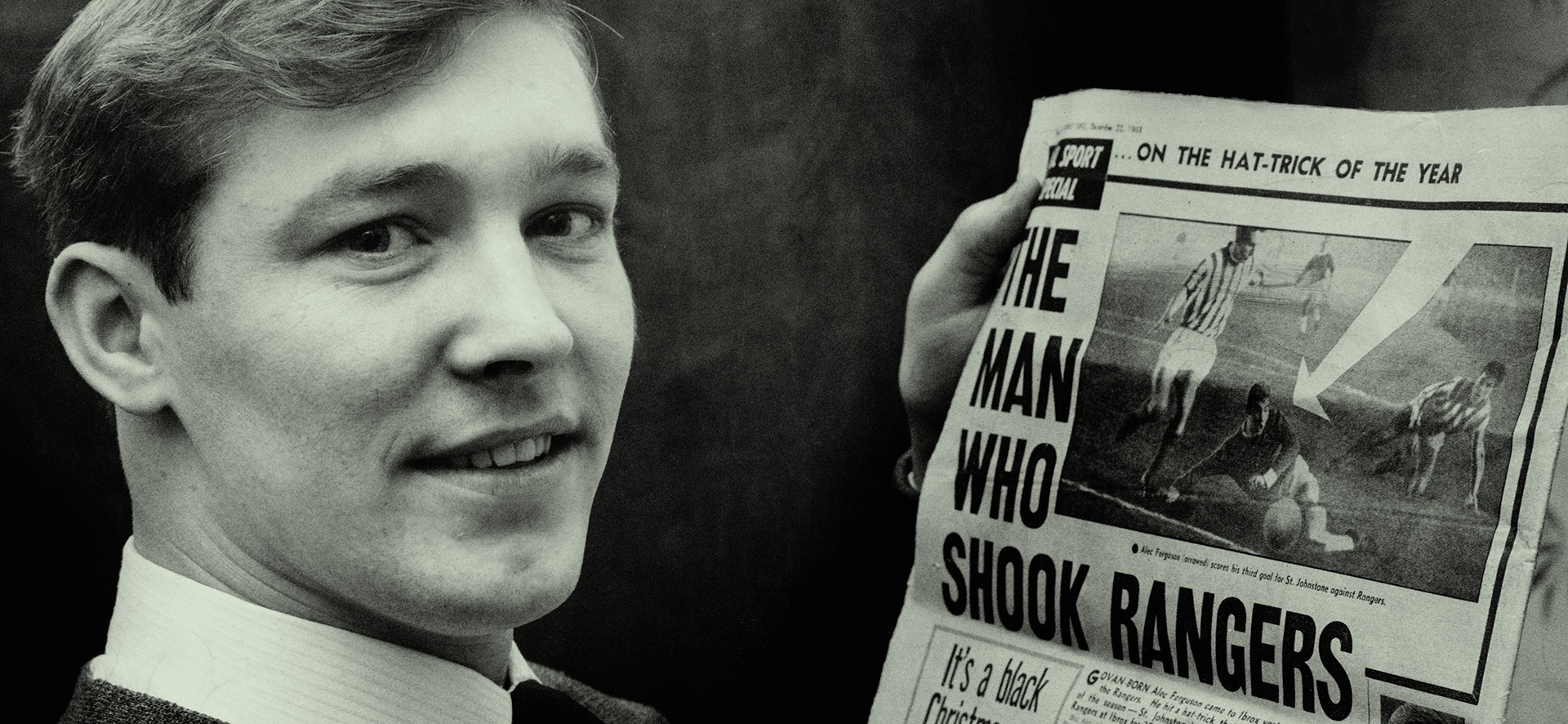Sir Alex Ferguson is arguably the greatest football manager of all-time. His achievements as coach of Manchester United for 27 years are unprecedented in the history of English football, a sport and culture that’s famous for its frequent disregard of managers. Ferguson was a tactical genius, a master of working with and bringing the best out of talent, his skills as a coach leading players such as David Beckham, Ryan Giggs, and Cristiano Ronaldo to otherworldly levels of greatness. There has never been a manager as successful, trophy-wise, and what he did will never be forgotten by Manchester United fans or anyone that loves the sport of football. He is the rare figure that every fan, regardless of background or preferred club, respects and admires as a towering giant of the game.
But he is only human—one day his greatness and mind will no longer be with us. That’s a reason why the new documentary Sir Alex Ferguson: Never Give In exists: as a vessel for Ferguson to articulate his own stories, discuss his favorite and least-favorite memories as a player and manager, and most importantly ensure that his son (director Jason Ferguson) gets to hear all of the stories come directly from him. It is an exceptionally personal work, and while it leans into a more traditional style of documentary filmmaking more often than not, the raw emotion and detail at its heart make up for any formal limitations.
Ferguson’s career in football spanned several decades—a feature film that’s just under two hours long can’t even come close to covering it all. Insights into his controversial relationship with David Beckham while at Manchester United or the period in his playing career after he was ostracized by Rangers aren’t covered in the slightest, and there are times where key aspects of his tenure at Manchester United feel a bit rushed. There’s not much focus placed on the 1999 Champions League final, for example, with Ferguson instead directing attention towards an incident in the 1990 FA Cup where he made a decision to bench goalkeeper Jim Leighton in the replay instead of risking another poor showing from his number 1, a decision that would ensure the end of Leighton’s career at Manchester United and relationship with Ferguson himself.
That’s the major theme of Ferguson’s own words: reflection on regrets and the difficult choices he’s had to make as a manager. While there is euphoria in his description of Manchester United winning the first Premier League season and the miraculous journey of taking Aberdeen to a European Cup victory, Ferguson is almost mournful about the game of football and everything he gave to it. He bitterly discusses being used as a scapegoat for a Scottish Cup loss by the Protestant club Rangers due to his wife’s Catholicism and talks directly to his son about how much time he missed watching his children grow up due to football.
The aspect of Never Give In that makes it worth watching is how it links the frailty of Ferguson to his career. He loves football. He has so many stories to tell about it. One day they’ll be gone. This documentary allows the world to see Sir Alex Ferguson as not just the fearsome manager of Manchester United, but a thoughtful and intelligent coach who loved the sport and wanted to do his best for it. Moments in which he discusses attempts to rebuild his memories following his major health scare are some of the documentary’s finest. The central sequence, where he gets to return to his home stadium Old Trafford to be celebrated by the crowd, is simply joyous. The emotion on his face shows how much this has all meant to him, and how much the sport means to everyone who’s ever fallen in love with the game. Hopefully we won’t have to say goodbye to Sir Alex for a long time, but when we do, this documentary is an exemplary way to memorialize him.
Sir Alex Ferguson: Never Give In premiered at the Glasgow Film Festival.

